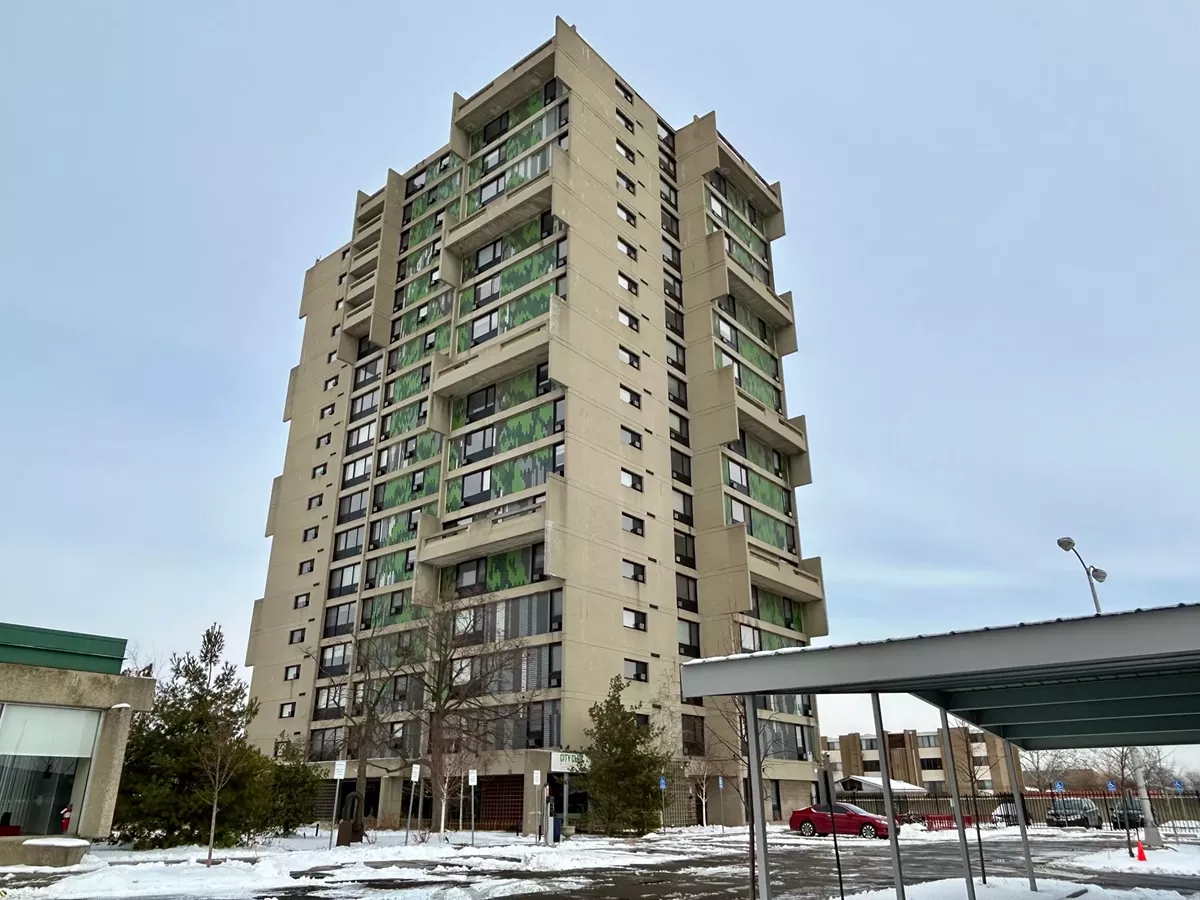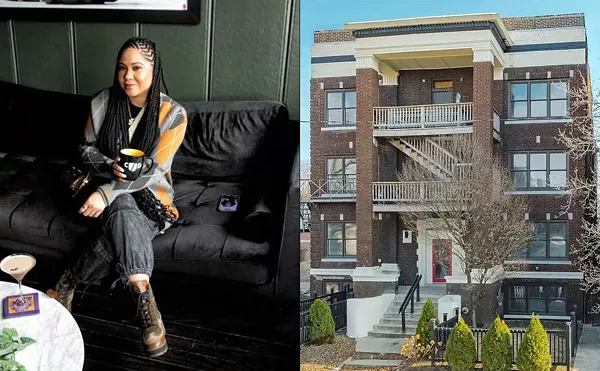Detroit tenants evicted for withholding rent as judges ignore housing code, advocates say
Residents in a high-rise apartment in Lafayette Park are facing eviction after speaking out about unsafe conditions


Audio By Carbonatix
[
{
"name": "GPT - Leaderboard - Inline - Content",
"component": "35519556",
"insertPoint": "5th",
"startingPoint": "3",
"requiredCountToDisplay": "3",
"maxInsertions": 100,
"adList": [
{
"adPreset": "LeaderboardInline"
}
]
}
]
Tenants at City Club Apartments in Detroit are being evicted for legally withholding rent in escrow while judges are failing to enforce a code meant to protect renters from unsafe living conditions, advocates and tenants say.
The 750 Chene Tenants Association and Detroit Tenants Association are calling on city officials to take immediate action to stop the evictions and enforce Detroit’s housing laws.
The tenants say they began placing their rent in escrow, which is a legal process recommended by the city, after their elusive landlord refused to fix serious maintenance issues, including persistent water damage and mold, heating and plumbing failures, and broken security features such as faulty entryways and poor lighting. Instead of making repairs, the property’s management company, Friedman Management, responded by filing eviction notices, according to both associations.
The high-rise building in Lafayette Park also lacks a certificate of compliance, which verifies the building meets safety standards. Under Detroit’s city code, landlords are prohibited from collecting rent or evicting tenants for nonpayment if the property lacks a certificate of compliance, according to advocates.
Nevertheless, as many as 20 residents, including seniors, are facing possible eviction for withholding rent, says Steven Rimmer, an organizer for the Detroit Tenants Association. Even if the eviction cases are dismissed or ruled in the tenant’s favor, the filing will remain on public court records and tenant screening reports, making it harder for tenants to find future housing.
“It’s a really messy situation,” Rimmer tells Metro Times. “The building hasn’t been compliant for a long time. Some of these people escrowed their rent, and they can’t afford these eviction cases. The city law clearly says if an apartment is not compliant, they can’t collect rent or evict residents.”
Residents who complain about conditions or hold their rent in escrow have been met with retaliation and legal threats, while property falls into repair, tenants say.
Cyle Anderson, 47, has been holding his rent in escrow and is worried about retaliation. He says his apartment has been so cold that he has slept under the covers with a coat and hoodie on. The security gate outside the building is stuck open, and thieves have been stealing from cars in the parking lot. According to tenants, the hot water and heat are unreliable, garbage piles up in the building, and the elevator is often out of order. Not long ago, a possum drowned in the apartment’s outdoor swimming pool, and the animal was left there for three days, Anderson says.
Although his apartment lacks sufficient heat, Anderson says his utility bill has hovered around $120 a month.
“Sleeping felt more like camping,” Anderson says.
Tenants like Anderson are dumbfounded that the apartment building still has no certificate of compliance.
“I cannot understand why you can be demonstrably found to be noncompliant and claim to be legitimate,” Anderson says. “That’s the part I can’t get with. They know they don’t have a certificate of compliance. I don’t think I’ll ever get my head around it.”
City officials are aware of the problem, says John Roach, spokesman for Mayor Mike Duggan, and Detroit’s building department conducted an inspection Friday and issued $1,000 in tickets for violations that include not being registered as a rental and not having a certificate of compliance.
“I’m not trying to get out of rent,” Anderson explains, saying he has a court hearing coming up. “They don’t recognize our right to withhold rent, so they treat you as delinquent. They’re trying to recoup the money without making the repairs.”
When tenants show up to 36th District Court, judges have allowed evictions to proceed, despite the apartment building’s lack of compliance and the tenants’ exercising their rights to hold money in escrow, tenants and advocates say.
Tenants who withhold rent are also getting charged late fees.
Making matters worse, tenants aren’t even sure who owns the building anymore. According to advocates and tenants, Friedman Management claims the property was placed into receivership and is no longer owned by Jonathan Holtzman, a Michigan-based real estate developer who has repeatedly missed payments on loans totaling hundreds of millions of dollars, according to Crain’s Detroit.
Through his company, Holtzman previously received a 12-year, $1.5 million tax abatement to renovate the 18-story apartment complex at 750 Chene St. It’s unclear whether the city can recover some of that money.
Tenant advocates say the situation at City Club Apartments is part of a larger problem in Detroit’s eviction system, where tenants are punished for exercising their legal rights, and judges are siding with slumlords.
Rimmer says he’s heard that 36th Court judges “feel the city of Detroit doesn’t have adequate staff to do adequate inspections, so they aren’t going to fault the landlords for not being in compliance.”
“We pay tax dollars, and that is what we pay them for,” Rimmer says. “It’s the law.”







